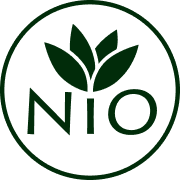Decaf matcha is a specially processed variant of matcha that has undergone methods to reduce or eliminate caffeine.
Unlike regular matcha, which naturally contains caffeine due to the young tea leaves' inherent properties, decaf matcha offers a milder taste and lower caffeine content.
What is decaf Matcha?
Decaf matcha is a specially processed version of matcha that has undergone methods to reduce its caffeine content.
While traditional matcha naturally contains caffeine, decaf matcha powder offers a gentler experience, perfect for those looking to enjoy green tea without the buzz.
Is Decaf Matcha Truly Decaffeinated? No.
Not entirely. Decaf matcha is not 100% caffeine-free. Even after the decaffeination process, trace amounts of caffeine still remain.
If you're asking, “is matcha caffeine free?”, the honest answer is no.
But decaffeinated matcha does contain far less caffeine, usually around 1–8mg per serving, compared to 20–40mg in regular matcha.
How is Decaf Matcha Made? The 3 methods.
This decaffeination process is applied to the tea leaves and not the finished powder, as the caffeine is on the outside of the leaves and once ground it can be difficult to isolate.
There are 3 methods used to create decaf matcha:
#1 Carbon Dioxide (CO2) Decaffeinated Matcha Tea
This method of producing decaffeinated matcha tea uses pressurized carbon dioxide to extract caffeine. The CO2 acts as a solvent, gently drawing out the caffeine molecules, which are then separated.
The CO2 not only extracts the caffeine, but other compounds as well, that’s why decaf matcha will never quite taste as good as true ceremonial grade matcha.
#2 Water Processed Decaf Matcha Green Tea
In this method of producing decaf matcha green tea, the tea leaves are soaked in water, allowing the caffeine to dissolve. The water is then filtered through activated charcoal or resin filters that capture the caffeine molecules to make decaffeinated matcha tea.
The caffeine-free water is reintroduced to the tea leaves to preserve the flavor, but it still will taste like a “second steeping” when you drink caffeine free matcha.
#3 Ethyl Acetate Decaf Matcha
There is one final method of producing decaffeinated matcha tea and it involves treating the tea leaves with ethyl acetate, a natural compound found in fruits and vegetables. Ethyl acetate selectively bonds with caffeine molecules, which can then be separated, leaving behind decaf matcha leaves.
Who is Decaf Matcha For?
If you’re sensitive to caffeine, pregnant, breastfeeding, or simply trying to cut back on stimulants, decaf matcha can be a great alternative. It’s also a go-to option for evening tea sessions or multiple cups throughout the day without worrying about sleep disruption.
Caffeine-free matcha options are especially appreciated by:
- People who get jittery or anxious from caffeine
- Those with high blood pressure or sleep issues
- Seniors limiting their stimulant intake
- Anyone looking for a calming tea that still delivers health benefits
Even though it’s not completely caffeine-free, decaf matcha offers a much smoother, more relaxing experience.
Downsides of Decaf Matcha
Unfortunately, there’s no way to decaffeinate matcha without sacrificing something in return. All matcha decaf methods involve extracting caffeine—and with it, some flavor compounds too.
If you’ve ever brewed tea twice, you’ll know what we mean. That first steeping is where all the magic happens. Decaffeinated matcha often tastes like that second steeping: a little duller, a bit thinner, and lacking that signature umami burst.
So if you're expecting the rich, bold taste of ceremonial matcha, decaf matcha might fall a little short. That said, for those who need low caffeine, the trade-off might be worth it.
Impact on Flavor and Quality
Flavor is where decaf matcha takes the biggest hit. Whether it’s water, CO₂, or ethyl acetate, something always gets lost in the process.
Matcha decaf tends to taste softer, flatter, and sometimes less vibrant. It may lack the creamy texture, rich umami, and fresh aroma that regular matcha is known for.
Even the color may change—many decaf matcha powders are a bit lighter in tone due to slight loss of chlorophyll during processing. If you're in it for the experience, this is something to keep in mind.
Impact on Nutrients
The good news? When done right, decaf matcha still retains most of its nutrients.
A 2021 analysis of water-processed decaffeinated matcha showed that it retained over 90% of its antioxidants like EGCG and nearly 100% of its L-theanine—the amino acid responsible for matcha’s calming effect.
CO₂ decaf matcha also retains nearly all its nutritional benefits, according to Japanese producers using this method. So while you may lose some flavor, the health perks of caffeine-free matcha remain mostly intact—especially when you choose high-quality brands.
Alternatives to Decaf Matcha
If you want to enjoy health benefits of matcha without the caffeine and without the processing, there is a great alternative to decaf matcha that you can try! It will allow you to enjoy a lot of the benefits of caffeine free matcha without all the extra processing.
It is called hojicha powder and it is made from roasted green tea leaves ground into a fine powder. The flavor is somewhere in between coffee and cocoa, so it works great in a latte, almost like a decaffeinated matcha tea.
Decaf Matcha - The Final Verdict

So is natural matcha good for you? Yes! While decaf matcha can be good for those avoiding caffeine, if you can handle a little bit of caffeine the unprocessed matcha is the way to go.
You'll get a broader spectrum of flavor profiles and nutrients with this tea than with a decaffeinated matcha tea.
If you want to experience the real deal and get some premium Japanese matcha tea grown without pesticides, you can browse our selection of matcha powder and accessories.




